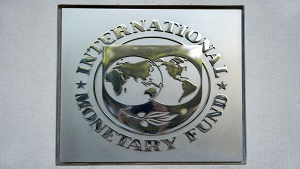Speaking to the National Council of Provinces on Thursday, Ramaphosa highlighted the country’s persistent poverty, inequality, and unemployment, which he attributed to the legacies of apartheid, colonialism, and systemic exclusion.
Ramaphosa’s proposal seeks to make basic food items more affordable by exempting additional products from Value-Added Tax (VAT).
This measure, he said, is aimed at ensuring that all South Africans have access to sufficient and affordable food, particularly amid rising food insecurity and malnutrition.
"Among the measures to ensure affordable food access, government is looking at whether the basket of food items exempt from VAT could be expanded to include more basic products," Ramaphosa stated.
Ramaphosa also emphasised the need to increase agricultural output through more effective land redistribution and targeted support for land beneficiaries to boost food production.
Ramaphosa’s address painted a grim picture of SA's socio-economic landscape, noting that nearly a quarter of the population experiences food poverty. The situation has contributed to alarming rates of childhood stunting due to malnutrition.
"Poverty, unemployment, and inequality are so perverse and persistent that we sometimes fear we may never overcome them. Yet, we overcame apartheid, slavery, and colonialism," he said.
Currently, 30 million South Africans—approximately half the country’s households—rely on state support, including social grants.
Social welfare expenditure accounts for 60% of the government’s budget, excluding debt servicing costs. This spending encompasses grants, free basic services such as water and electricity, and subsidised healthcare and education.
Despite his efforts to address systemic poverty, Ramaphosa faced criticism for what some view as a lack of accountability for the African National Congress’s (ANC) governance over the past 30 years.
Sonja Boshoff, a Democratic Alliance (DA) member of the National Council of Provinces, accused the ANC of deflecting blame.
"Under the ANC, inequality has worsened. The rich get richer through corrupt deals, while the poor are left to fend for themselves," Boshoff charged. She argued that the ANC’s failures, including corruption and mismanagement, have deepened inequality and hindered progress.
Ramaphosa also addressed the recent deaths of 23 children linked to food contaminated with harmful pesticides purchased from informal spaza shops. He revealed that multidisciplinary teams are conducting inspections of these shops to ensure compliance with food safety regulations.
"These shops are now required to register and meet site regulations to prevent future harm to the public," Ramaphosa stated, underscoring the government’s commitment to strengthening food safety measures.
Ramaphosa’s proposals come amidst mounting pressure on the government to tackle the intersecting crises of poverty, unemployment, and food insecurity. While expanding the VAT-free food basket and improving agricultural output may bring some relief, critics argue that systemic governance failures must also be addressed to achieve lasting change.
--ChannelAfrica--












